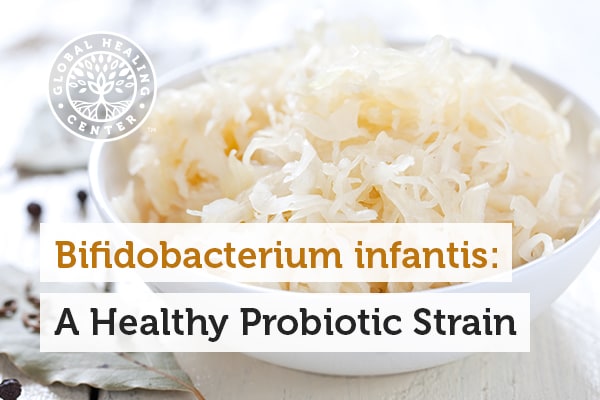
With all the talk about probiotics, you’ve probably – at one point or another – considered supplementing. The idea of consuming bacteria, however, may seem a bit alien to most people, simply because they’ve been brainwashed to believe all bacteria is bad. The praising of antibiotics and antibacterials in mainstream culture has simply perpetuated this myth. Probiotics, on the other hand, are symbiotic organisms that help you digest food, stimulate your immune system (thus helping fight infections!), and even produces some of the vitamins you need for life.
Beyond Digestion: Benefits of Probiotics
Your gut is where digestion happens and where most of your immune response occurs. A lot of the nutrients you get come from friendly bacteria which help digest the food you eat. Probiotics also produce essential nutrients like vitamin B3 and folate. [1] Bad bacteria, like E. coli and C. difficile, produce toxins that poison, cause illness, and speed the aging process. When friendly probiotics like Bifidobacterium infantis line your intestines, they break down fiber and sugars that lead to bloating, gas, and aggravate conditions like IBS. [2] And studies have shown that men and women with balanced levels of probiotic bacteria can focus and concentrate better and enjoy stronger bones, normal blood sugar, fewer allergies, and better cardiovascular health. [3] [4]
Bifidobacterium infantis: A Strain You Want
Your life depends on the health of your gut. When you don’t have enough probiotic bacteria, germs and toxins attack the lining of the intestine. This damages the cells lining your intestine, and with enough damage, germs and toxins get into your blood. While you may not see this happening, you feel the results. Frequent bloating and gas indicate there’s a concern with your digestive system, and probably indicates your intestines are running low in beneficial bacteria. But you may also experience frequent headaches, increased allergic response, blood sugar spikes, and chronic illness. B. infantis thrives most in the intestines of infantis as it helps break down lactic acid in human breast milk. With this benefit, isn’t it fitting that the bacterial strain is named B. infantis? But don’t let its name fool you; it’s good for kids and adults, too. This probiotic also feeds on natural fructose (not the frankenfood ingredient HFCS), glucose, and other all-natural carbs.
Adults who keep their B. infantis levels in balance enjoy better overall health, an active metabolism, and less discomfort after eating. British researchers reported it only took four weeks for women who took B. infantis to enjoy a significant improvement in their IBS symptoms. [5] Another study published in the American Journal of Gastroenterology found B. infantis supports stomach health and digestion. [6] But it does more than aid digestion. It also supports your immune system against unwanted bacterial growth in the intestines. And some strains even produce B vitamins.
The Best Sources of Probiotics
With today’s constant exposure to environmental toxins, processed foods, antibiotics, and germs, your probiotic levels are constantly under attack. To compensate, you need to support your gut health by getting probiotics regularly. One way is to eat foods like kefir, tempeh, yogurt, cheese, and sauerkraut. If you’re trying to get a specific probiotic, like B. infantis, to address digestive issues and promote normal digestion, you may want a supplement. I recommend Global Healing's Ultimate Probiotic, my superior blend of 25 probiotics, including Bifidobacterium infantis. This probiotic supplement contains billions of live cultures along with prebiotics, the compounds that promote the growth of probiotics.
References (6)
- Rossi M, Amaretti A, Raimondi S. Folate production by probiotic bacteria. Nutrients. 2011 Jan;3(1):118-34. doi: 10.3390/nu3010118.
- Whorwell PJ, Altringer L, Morel J, et al. Efficacy of an encapsulated probiotic Bifidobacterium infantis 35624 in women with irritable bowel syndrome. Am J Gastroenterol. 2006 Jul;101(7):1581-90.
- Kolsoom Parvaneh, Rosita Jamaluddin, Golgis Karimi, and Reza Erfani. Effect of Probiotics Supplementation on Bone Mineral Content and Bone Mass Density. The Scientific World Journal. Volume 2014 (2014), Article ID 595962, 6 pages. doi: 10.1155/2014/595962.
- Rajiv Saini, Santosh Saini, and Sugandha Sharma. Potential of probiotics in controlling cardiovascular diseases. J Cardiovasc Dis Res. 2010 Oct-Dec; 1(4): 213-214. doi: 10.4103/0975-3583.74267.
- Whorwell PJ, Altringer L, Morel J, et al. Efficacy of an encapsulated probiotic Bifidobacterium infantis 35624 in women with irritable bowel syndrome. Am J Gastroenterol. 2006 Jul;101(7):1581-90.
- Brenner DM, Moeller MJ, Chey WD, Schoenfeld PS. The utility of probiotics in the treatment of irritable bowel syndrome: a systematic review. Am J Gastroenterol. 2009 Apr;104(4):1033-49; quiz 1050. doi: 10.1038/ajg.2009.25.
†Results may vary. Information and statements made are for education purposes and are not intended to replace the advice of your doctor. If you have a severe medical condition or health concern, see your physician.







